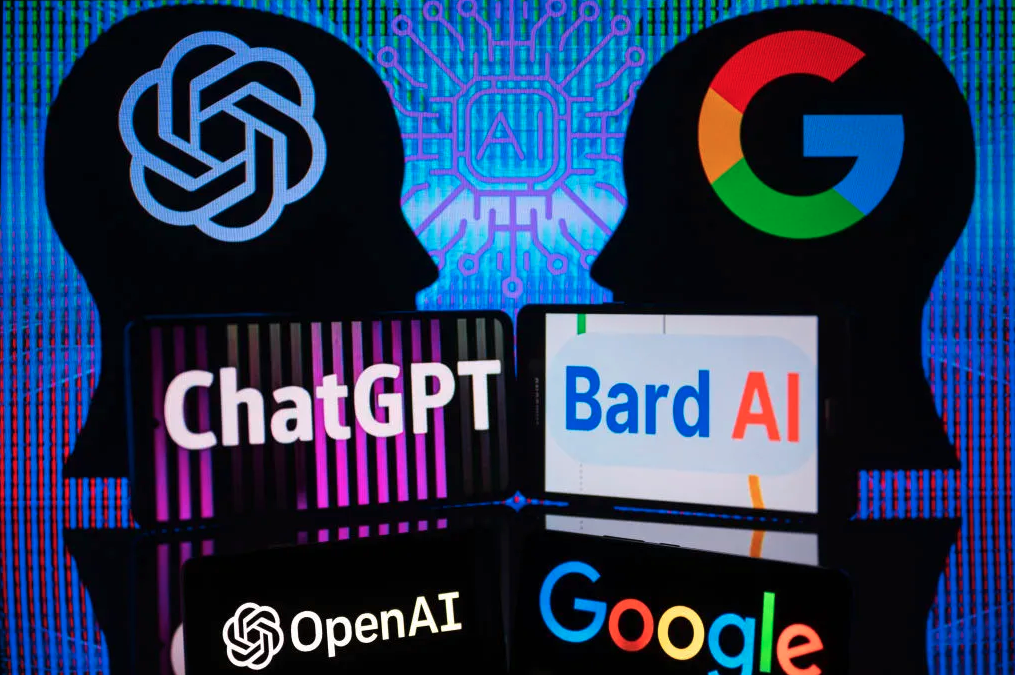The Tech Giants Slow Down Their AI Recruitment in 2023.
The last twelve months — since the launch of ChatGPT by OpenAI in November 2022 — have been a momentous period for the field of Artificial Intelligence. There has been a flurry of new AI products launched by start-ups and Tech Giants, and record amounts of venture capital funding have been flowing to Generative AI start-ups. Against this backdrop something counter-intuitive has been happening: the pace of AI recruitment at the Tech Giants has been slowing down.
In an article published earlier this year, we analysed the AI armies at the tech giants — the pools of talented AI researchers and programmers. The article analysed the size of these armies, where they are located, roles and skills, and their gender balance. These talent pools combined with access to GPUs — specialised chips that power modern AI systems— and leadership focus, are key determinants of who may win the ongoing AI wars between the tech giants.
At glass.ai we have built an AI research capability that deep-reads the web to understand companies and sectors. We decided to update the research on the core AI teams at the following tech giants:
Amazon + AWS
Microsoft + OpenAI
Google + DeepMind
Meta
Apple
The slowdown in hiring during 2023
We analysed AI recruits from the beginning of 2014 until Oct of 2023. We gathered the data by looking at the years when the AI employees started their current roles. From 2014 to 2022, in every Tech Giant, we saw an increase in the number of AI personnel year-on-year. In some years, the number of AI recruits nearly doubled.
However, in 2023 (the data goes from January to October) we have seen a significant reduction in the number of AI recruits. Amazon, for example, only recruited 958 AI personnel in 2023 compared to 3,033 in 2022. Google recruited 477 AI personnel in 2023 compared to 1,377 in 2022. This pattern is repeated at Microsoft (570 in 2023 vs 1,499 in 2022), Apple (380 in 2023, 1,007 in 2022), and at Meta (364 in 2023, 2486 in 2022). These reductions in 2023 roughly correspond to only about a third of the total AI personnel that was recruited in 2022. Bloomberg reported on these glass.ai findings:
So what’s going on?
There could be several potential explanations for the slowdown in AI recruitment at the Tech Giants:
Job cuts: at the end of the pandemic, virtually all of the tech giants implemented wide-ranging job cuts to improve profitability and the AI units were not spared. These cost controls seem to be extending to AI roles, despite the massive increase in AI products/services. For example, Meta declared that 2023 was the “year of efficiency” which resulted in 11,000 job losses in November 2022.
Competition for Talent from AI start-ups: over the last year, many AI start-ups raised large funding rounds allowing them to lure AI talent with lucrative share options. This talent in previous years would have (most likely) joined tech giants for their large salaries and their innovation in AI. Large Language Model (LLM) start-ups in particular have raised large funding rounds and allow exciting and alternative employment routes for AI talent. Most notable LLM startup funding rounds in 2023 include Aleph Alpha ($500m), Anthropic ($450m), Cohere ($270m), Character.ai ($150m) and Mistral ($113m).
Confidence in AI Innovation: There is a loss of confidence in the AI innovation capabilities at the Tech Giants which could make them less attractive to top AI researchers. The best example is the Transformer — the key 2017 AI development that led to Large Language Models like ChatGPT — which was invented at Google (Google Brain division) but it took a start-up, OpenAI, to commercialise this ground-breaking innovation. None of the authors of Google’s landmark Transformer paper are at Google anymore with many of them founding AI startups. Adept, Cohere, CharacterAI, and Sakana were all founded by co-authors of the original Transformer paper.
Conclusion
The recruitment velocity of AI talent at the Tech Giants between the years of 2014 to 2022 was very high, and in some years the number of recruits from one year to the next doubled. 2023 has seen a dramatic slowdown in AI recruitment at Tech Giants, despite the massive increase in demand for AI products and services.
One of the open questions in AI recruitment going forward is how much Large Language Model (LLM) driven software development could impact the need for large numbers of AI researchers and programmers. Services like Microsoft’s Github Co-pilot are now transforming the efficiency of software development with some estimating a 55% increase in efficiency. In addition, increasingly LLMs are good at reading and understanding scientific papers and we should expect such systems to read AI research papers and implement their findings in software (when software is not provided as part of the paper). However, getting good results from AI systems requires a lot of experimentation — ‘an art as much as a science’ — but this also may be subject to automation by AI agents that can run tasks, assess results, refine and iterate, until the desired performance is achieved.
If you are interested in the underlying data or if you need help researching companies and sectors, do not hesitate to get in touch: info@glass.ai


